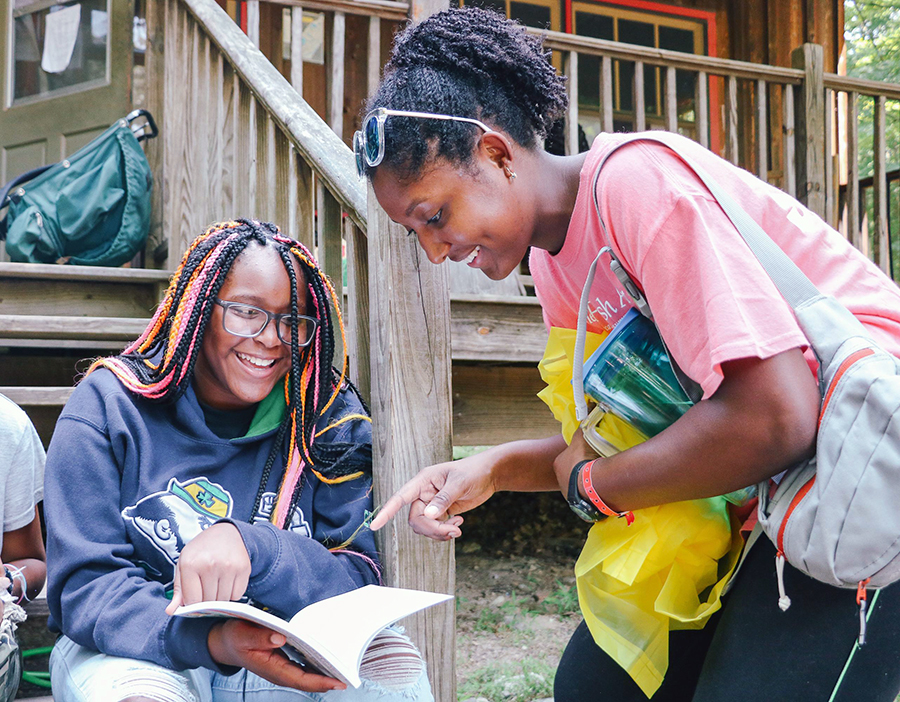
Fresh Air Fund
The Fresh Air Fund intentionally creates a pathway for young people to develop skills that potentially can lead to a future job with the organization. Carla Brown (right), shown here with a camper, was a camper herself for the first time in summer 2009. She took part in the organization’s leadership training and counselor-in-training programs before becoming a counselor and is now a member of the Camp Anita Bliss Coler leadership team.
How can after-school and summer programs recruit and retain staff more easily?
The Fresh Air Fund has a few answers.
The 142-year-old organization runs six summer camps and some year-round activities for kids living in under-resourced areas of New York City. About 3,000 kids attend camp.
Each summer, the Fresh Air Fund hires more than 500 people to staff its camps. Fully 17% are recruited from within — they came up through the program. The trick is creating a pathway for youth in the program from the middle school years onward.
It’s a strategy that other youth-serving organizations — not only summer camps — can adopt, said Fatima Shama, executive director of the Fresh Air Fund.
“It will likely look different for a lot of places,” Shama said. But it’s about investing in the young people you serve, she said.
Many after-school programs have a summer component. They could consider developing some of their young people to work in the summer program, for example, she said.
“We have a very intentional ladder [at the Fresh Air Fund],” Shama said.
First of all, the organization focuses on keeping kids coming back to camp year after year. About 60% attend more than one summer, Shama said.
Kids are kept engaged throughout the school year in programs that begin to develop their leadership skills. Sixth graders can apply to take part in a three-year career awareness program.
A leadership program for girls ages 13-17, held in the summer at Camp Anita Bliss Coler, meets weekly during the school year.
For teen boys, a monthly drop-in program builds a sense of community, Shama said. They might watch a movie or have conversations about what it means to be a young man of color in New York City, she said.
High school students are also supported in preparing for and enrolling in college through the College Connections programs. Many are the first in their families to go to college.
Eight-week counselor-in-training programs at the summer camps are the first step for young people to learn about working with younger kids.
“We help the CITs understand what it’s like to be a counselor,” Shama said.
In addition, a pilot program begun last year invites selected young adults to take part in leadership development. Among other things, they explore what it means to create a community and culture in the organization, Shama said.
Recruiting from within helps the Fresh Air Fund hire staff who represent the diversity of the campers.
“There’s something powerful [for campers] in seeing someone who looks like them in this adult role,” Shama said.
It’s also a continued investment in youth. The training that young professionals get are those 21st century skills that they will need in their careers, she said, including time management, public speaking and community-building skills.
It’s important for the organization to keep in touch with young adults as they continue through college, said Roberto Gil Jr., deputy director of camping and year-round programs.
“Retention is so much about relationship-building,” he said at the National Summer Learning Association conference in Atlanta in October. It’s also about good training.
“Professional development is really key to having staff stay around,” he said. Training staff about youth development should be interactive and team-building, he said. It’s a chance to create that culture in your organization, he said.































